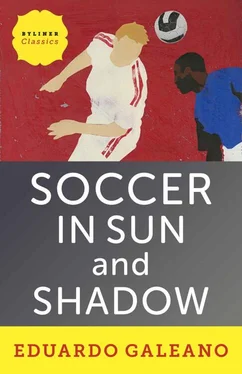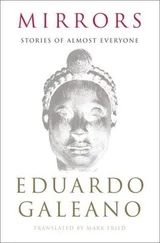When Brazil won its fourth World Cup, only a few of the celebrating journalists managed to hide their nostalgia for the marvels of days past. The team of Romario and Bebeto played an efficient match, but it was stingy on poetry: a soccer much less Brazilian than the hypnotic play of Garrincha, Didi, Pelé, and their teammates in ’58, ’62 and ’70. More than one reporter noted the shortage of talent, and several commentators pointed to the style of play imposed by the manager, successful but lacking in magic: Brazil had sold its soul to modern soccer. But there was another point that went practically unmentioned: the great teams of the past were made up of Brazilians who played in Brazil. On the 1994 team, eight of them played in Europe. Romario, the highest-paid Latin American player in the world, was earning more in Spain than all eleven of Brazil’s ’58 team put together, who were some of the greatest artists in the history of soccer.
The stars of yesteryear were identified with a local club. Pelé was from Santos, Garrincha was from Botafogo, and Didi as well despite a fleeting experience overseas, and you could not imagine them without those colors or the yellow of the national team. That’s the way it was in Brazil and everywhere else, thanks to loyalty to the uniform or clauses in the contracts of feudal servitude that until recently tied players for life. In France, for example, clubs had property rights over players until they were thirty-four years old: they could go free once they were all washed up. Demanding freedom, France’s players joined the demonstrations of May 1968, when Paris barricades shook the world. They were led by Raymond Kopa.
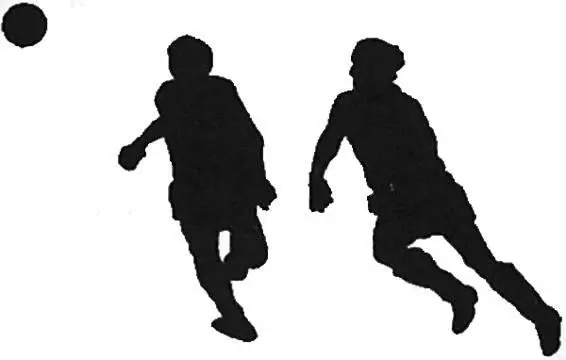
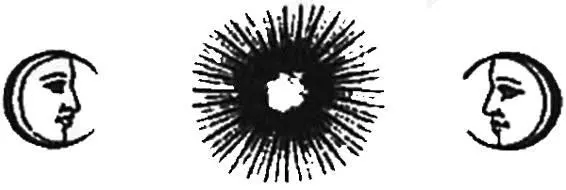
The ball turns, the world turns. People suspect the sun is a burning ball that works all day and spends the night bouncing around the heavens while the moon does its shift, though science is somewhat doubtful. There is absolutely no question, however, that the world turns around a spinning ball: the final of the ’94 World Cup was watched by more than two billion people, the largest crowd ever of the many that have assembled in this planet’s history. It is the passion most widely shared: many admirers of the ball play with her on fields and pastures, and many more have box seats in front of the TV and bite their nails as twenty-two men in shorts chase a ball and kick her to prove their love.
At the end of the ’94 Cup every child born in Brazil was named Romario, and the turf of the stadium in Los Angeles was sold off like pizza, at twenty dollars a slice. A bit of insanity worthy of a better cause? A primitive and vulgar business? A bag of tricks manipulated by the owners? I’m one of those who believe that soccer might be all that, but it is also much more: a feast for the eyes that watch it and a joy for the body that plays it. A reporter once asked German theologian Dorothee Sölle, “How would you explain happiness to a child?”
“I wouldn’t explain it,” she answered. “I’d toss him a ball and let him play.”
Professional soccer does everything to castrate that energy of happiness, but it survives in spite of all the spites. And maybe that’s why soccer never stops being astonishing. As my friend Ángel Ruocco says, that’s the best thing about it — its stubborn capacity for surprise. The more the technocrats program it down to the smallest detail, the more the powerful manipulate it, soccer continues to be the art of the unforeseeable. When you least expect it, the impossible occurs, the dwarf teaches the giant a lesson, and a runty, bowlegged black man makes an athlete sculpted in Greece look ridiculous.
An astonishing void: official history ignores soccer. Contemporary history texts fail to mention it, even in passing, in countries where soccer has been and continues to be a primordial symbol of collective identity. I play therefore I am: a style of play is a way of being that reveals the unique profile of each community and affirms its right to be different. Tell me how you play and I’ll tell you who you are. For many years soccer has been played in different styles, unique expressions of the personality of each people, and the preservation of that diversity seems to me more necessary today than ever before. These are days of obligatory uniformity, in soccer and everything else. Never has the world been so unequal in the opportunities it offers and so equalizing in the habits it imposes: in this end of century world, whoever does not die of hunger dies of boredom.
For years I have felt challenged by the memory and reality of soccer, and I have tried to write something worthy of this great pagan mass able to speak such different languages and unleash such universal passion. By writing, I was going to do with my hands what I never could accomplish with my feet: irredeemable klutz, disgrace of the playing fields, I had no choice but to ask of words what the ball I so desired denied me.
From that challenge, and from that need for expiation, this book was born. Homage to soccer, celebration of its lights, denunciation of its shadows. I don’t know if it has turned out the way soccer would have liked, but I know it grew within me and has reached the final page, and now that it is born it is yours. And I feel that irreparable melancholy we all feel after making love and at the end of the match.
In Montevideo, in the summer of 1995
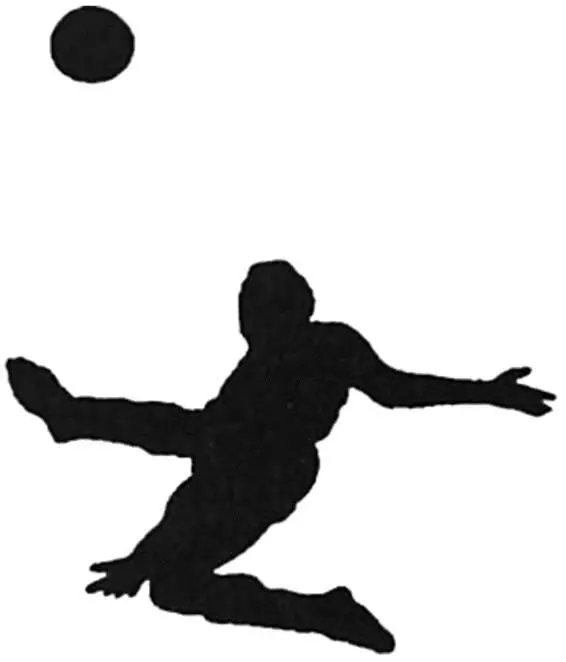
Extra Time. The 1998 World Cup
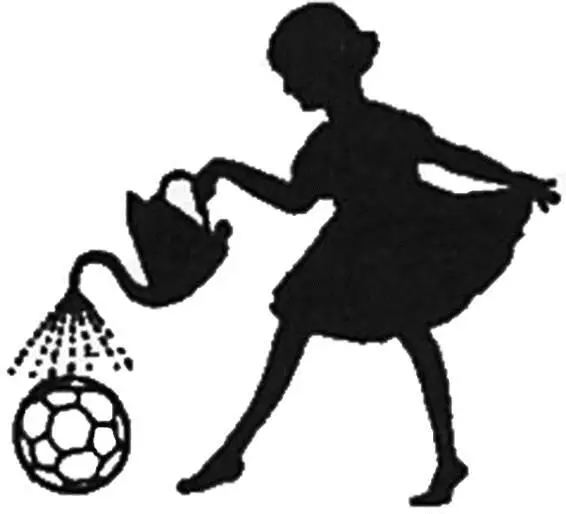
India and Pakistan were fulfilling the dream of having their own bombs, waltzing into the great powers’ exclusive nuclear club through the front door. Asian stock markets were lying prostrate, as was the long dictatorship of Suharto in Indonesia, emptied of power even while his pockets remained heavy with the $16 billion that power had placed there.
The world was losing Frank Sinatra, “The Voice.” Eleven European countries were agreeing to launch a single currency, the euro. Well-informed sources in Miami were announcing the imminent fall of Fidel Castro, it was only a matter of hours.
João Havelange was abdicating the throne and installing in his place the dauphin Joseph Blatter, senior courtier in the kingdom of world soccer. General Videla, Argentina’s former dictator who twenty years earlier had inaugurated the World Cup alongside Havelange, was marching off to jail, while in France a new championship got under way.
Despite serious complications caused by a strike at Air France, thirty-two teams arrived at elegant Saint Denis stadium to take part in the final World Cup of the century: fifteen from Europe, eight from the Americas, five from Africa, two from the Middle East, and two from Asia.
Cries of victory, murmurs of mourning: a month of combat in packed stadiums left France, the host, and Brazil, the favorite, waiting to cross swords in the final. Brazil lost 3–0. Suker from Croatia led the list of scorers with six, followed by Batistuta from Argentina and Vieri from Italy with five apiece.
According to a study reported in the London Daily Telegraph, during a soccer match fans secrete nearly as much testosterone as the players. Multinational companies also work up such a lather that you would think they were the ones on the field. Brazil did not become a five-time winner, but Adidas did. Beginning with the ’54 Cup, which Adidas won with Germany, this was the fifth victory of the players representing the three bars. With France, Adidas raised the solid gold trophy once more. And with Zinedine Zidane, it took the prize for best player. Rival Nike, whose star, Ronaldo, was ill for the final, had to settle for second and fourth places, which it won with Brazil and the Netherlands. A junior company, Lotto, scored a coup with Croatia, which had never been to a World Cup and against all odds came in third.
Читать дальше
